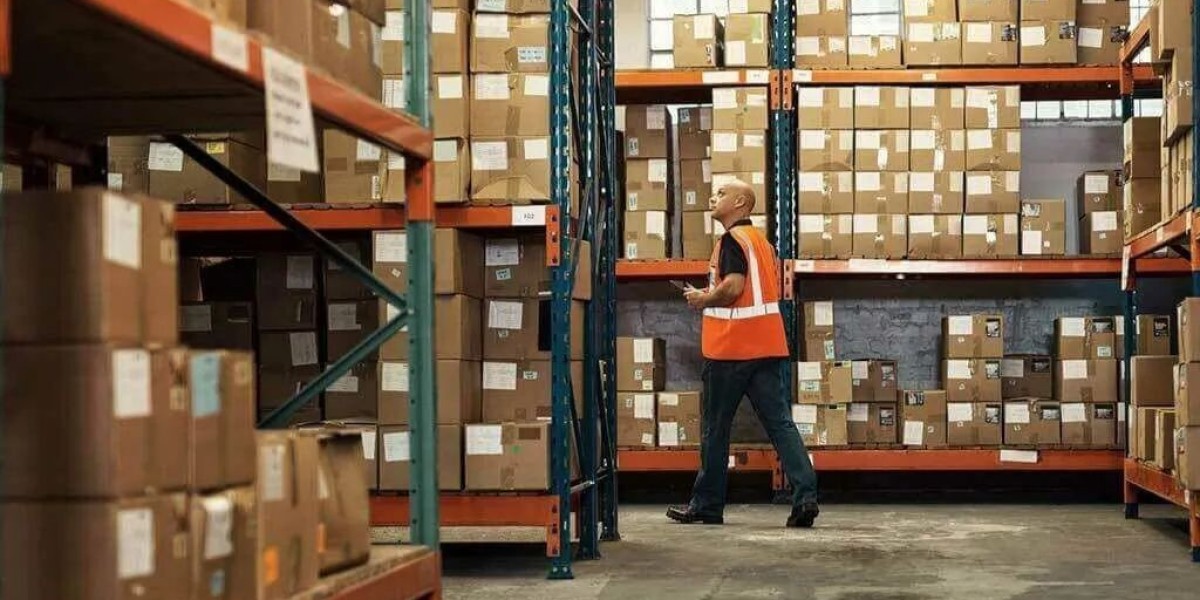Introduction
In today’s globalized and fast-paced market, businesses across industries rely on wholesale distributors to help them get products into the hands of consumers quickly and efficiently. A wholesale distributor serves as the middleman between manufacturers and retailers or other businesses that need products in bulk at a discounted price. Whether you're a small business looking to expand your product offerings or a large corporation seeking efficient logistics solutions, understanding the role of Distributor is critical to your success.
This article explores everything you need to know about wholesale distributors, including their role in the supply chain, how they operate, and how to choose the best one for your business.
What is a Wholesale Distributor?
A wholesale distributor is a company or individual that purchases goods in large quantities from manufacturers and sells them in smaller quantities to retailers, other businesses, or sometimes directly to consumers. The primary function of a wholesale distributor is to serve as a bridge between the manufacturer and the retailer or end-user, ensuring that products reach their intended destinations without the complexities of direct manufacturing or supply chain management.
Wholesale distributors typically handle many different products, spanning various industries, including electronics, clothing, food and beverage, pharmaceuticals, and more. They manage large volumes of inventory and are skilled in navigating logistics, supply chain management, and customer service.
The Role of Wholesale Distributors in the Supply Chain
Wholesale distributors play a pivotal role in the supply chain, providing value-added services and facilitating smooth operations between manufacturers and buyers. Here’s a deeper look at their responsibilities:
1. Purchasing in Bulk
Wholesale distributors buy goods in bulk directly from manufacturers, taking advantage of economies of scale. By purchasing large quantities, they can negotiate better prices and pass those savings onto the retailers or businesses they serve. This bulk purchasing helps lower the cost per unit, which is critical for businesses looking to maximize profits.
2. Inventory Management
One of the key services provided by wholesale distributors is inventory management. They manage large quantities of stock and are responsible for keeping track of inventory levels, forecasting demand, and ensuring that products are available when needed. This can save retailers the hassle of managing large inventories and dealing with stockouts or overstocking issues.
3. Warehousing and Storage
Wholesale distributors typically operate large warehouses where products are stored before being distributed to retailers or end-users. These warehouses are designed to hold inventory in optimal conditions and are equipped with the necessary infrastructure to store products safely and efficiently. This allows businesses to avoid the overhead costs associated with warehousing products themselves.
4. Logistics and Distribution
Wholesale distributors manage the logistics and transportation of goods from the manufacturer to the retailer. They are responsible for ensuring that products are delivered on time and in the right quantities. Many distributors offer delivery services directly to retail locations or stores, which reduces the logistical burden on businesses.
5. Marketing and Sales
Wholesale distributors also help market and sell products to retailers or businesses. They often work closely with manufacturers to create promotional materials, provide sales support, and offer product training to ensure that retailers are equipped to sell the products successfully.
6. Customer Service and Support
Providing customer service and support is another key role of a wholesale distributor. They act as a liaison between the manufacturer and the buyer, addressing any issues related to product quality, order fulfillment, returns, and warranties. This ensures a smoother buying experience for retailers, enabling them to focus on their core business activities.
Types of Wholesale Distributors
Wholesale distributors can be categorized into different types based on their business models and the way they operate. Here are some of the most common types:
1. Merchant Wholesalers
Merchant wholesalers are the most common type of wholesale distributor. They purchase products from manufacturers, take ownership of the inventory, and then resell it to retailers or other businesses. Merchant wholesalers typically carry a large selection of products from various manufacturers and often specialize in specific product categories or industries.
2. Brokers and Agents
Brokers and agents act as intermediaries between manufacturers and buyers. Unlike merchant wholesalers, they do not take ownership of the products they sell. Instead, they earn commissions for facilitating the sale between manufacturers and retailers. Brokers and agents typically specialize in a particular industry or product type, such as food, chemicals, or machinery.
3. Specialty Distributors
Specialty distributors focus on a niche market or specific product category, such as electronics, auto parts, or medical supplies. They usually have deep expertise in their particular area and offer specialized services, including product knowledge, customized packaging, and tailored logistics solutions.
4. Wholesale Distributors with Private Label Products
Some Wholesale Distributors work with private label products, which means they sell goods that are manufactured by third parties but branded under their own name. These distributors typically focus on selling a specific brand or range of products, often offering exclusive deals to their retail customers.
How to Choose the Right Wholesale Distributor for Your Business
Choosing the right wholesale distributor is a critical decision that can impact your business's efficiency, profitability, and growth. Here are some key factors to consider when selecting a distributor:
1. Product Selection
Ensure that the distributor you choose carries the products you need and that they have a broad selection of high-quality goods. If you're a retailer, you'll want to partner with a distributor that offers a variety of items to meet customer demand. If you’re in a specialized market, ensure the distributor is familiar with your product niche.
2. Reliability and Reputation
A reliable wholesale distributor is one that delivers products on time, maintains consistent inventory levels, and addresses issues promptly. Take time to research the distributor’s reputation by reading customer reviews, asking for references, and reviewing their track record for delivery and product quality.
3. Pricing and Payment Terms
Pricing is always a key factor when selecting a wholesale distributor. Look for distributors that offer competitive prices while still providing high-quality products and services. Additionally, assess their payment terms, such as discounts for early payments, bulk pricing, and other financial incentives that may benefit your business.
4. Shipping and Delivery
Evaluate the distributor’s shipping policies and delivery options. Make sure they can deliver products in the quantities and timeframes that suit your business operations. Check whether they offer free shipping, shipping discounts for bulk orders, and how reliable their delivery process is.
5. Customer Service
Excellent customer service is essential in any business partnership. Choose a distributor that is easy to communicate with, responsive to your queries, and proactive in solving problems. Good customer service can help smooth over issues with deliveries, stockouts, or product defects.
6. Technology and Ordering Systems
Modern wholesale distributors often provide digital platforms for easier ordering and tracking. Consider whether the distributor has a user-friendly online ordering system, allows you to check stock levels in real-time, and offers automated order updates.
7. Location and Distribution Network
The location of a distributor’s warehouse can affect shipping costs and delivery times. If possible, choose a distributor with a warehouse near your business location or one that offers a wide distribution network for faster delivery.
Benefits of Working with Wholesale Distributors
Working with a wholesale distributor offers several advantages for businesses, including:
- Cost Savings: Bulk purchasing allows businesses to get products at lower prices, increasing profit margins.
- Reduced Operational Costs: Wholesale distributors handle warehousing, inventory management, and logistics, saving businesses time and resources.
- Access to a Wide Product Range: Distributors offer a broad range of products, allowing businesses to access a variety of goods without having to source each product individually.
- Streamlined Operations: By outsourcing logistics and inventory management, businesses can focus on core activities such as marketing and customer service.
- Scalability: Working with wholesale distributors allows businesses to scale operations quickly without having to invest in large infrastructure or resources.
Conclusion
Wholesale distributors are integral players in the supply chain, helping businesses of all sizes access products at competitive prices while streamlining logistics and inventory management. By understanding their role and selecting the right distributor, businesses can enhance their efficiency, reduce operational costs, and ultimately grow in an increasingly competitive marketplace. Whether you're a small retailer or a large enterprise, building strong relationships with Bj Wholesale distributors can provide a significant competitive edge in today’s dynamic economy.








